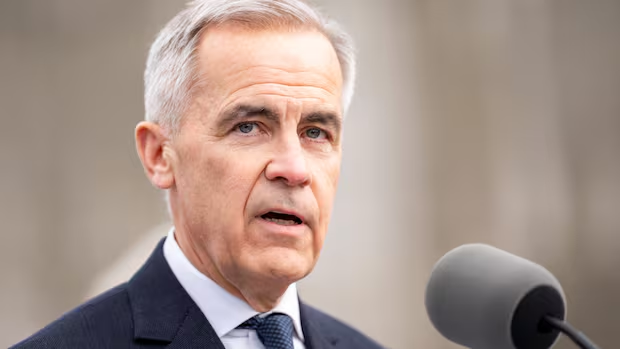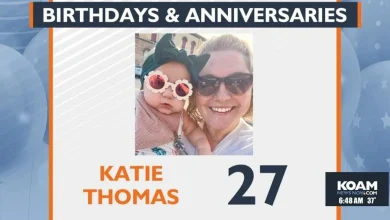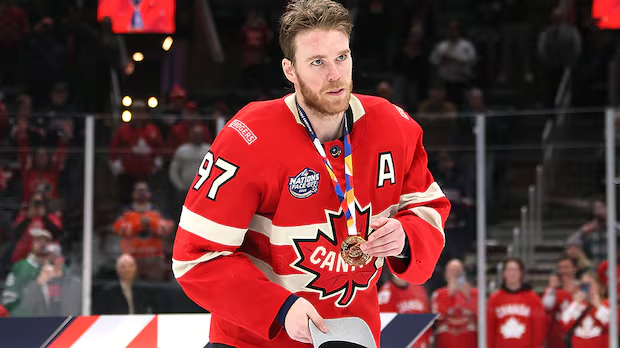Carney heads to U.A.E. hoping to sign investment pact with gulf nation

Prime Minister Mark Carney is aiming to sign a formal investment agreement with the United Arab Emirates on his visit there this week, a senior government official told CBC News.
“There’s a deal ready to go,” said the official, who was not authorized to speak publicly about it.
The official said that there are hopes to go even further with an announcement of “next steps” beyond the expected foreign investment promotion and protection agreement (FIPA).
A FIPA lays the groundwork for Canada and another country to invest in each other’s economies, establishing rules, including a dispute settlement process, that provide both sides with a predictable investment climate — something experts say is particularly important during these uncertain times.
“The full-on assault on globalization, multinationalism and free trade has us looking around the world to say ‘where can we go where there is some sense of commitment to some order, some rules and some structure,” said Goldy Hyder, president and CEO of the Business Council of Canada, adding that FIPAs are sometimes a first step toward a larger free trade agreement.
Carney is slated to meet with U.A.E. President Sheikh Mohamed bin Zayed Al Nahyan on Thursday in Abu Dhabi with the explicit focus on expanding the Canada-U.A.E. economic partnership in key sectors such as energy, agriculture, infrastructure and AI.
Carney’s gulf state stop is on the way to the G20 leaders’ summit in Johannesburg, South Africa.
“The U.A.E. is one of the biggest investors out there. They have been using their sovereign wealth funds to invest in many places around the world and there are great opportunities in Canada,” said Roland Paris, director of the Graduate School of Public and International Affairs at the University of Ottawa.
“I’m sure that Mark Carney is going to be talking about the major projects, including energy projects,” he said.
In fact, Carney is scheduled to meet with the heads of those sovereign wealth funds during the trip, government officials said during a background briefing to reporters on Monday.
The trip is part of Carney’s efforts to attract billions of dollars in direct foreign investment to Canada, and to diversify trade partners after the rupture in Canada’s trading relationship with the U.S. mainly due to President Donald Trump’s tariffs.
The senior government official says part of the prime minister’s pitch to the U.A.E. is to bolster the image of Canada as a safe harbour for investment, as well as a country increasingly playing a linkage role between the European Union and Asia.
Relationship building
Carney’s visit to the U.A.E. comes after that country’s deputy prime minister and foreign affairs minister, Sheikh Abdullah bin Zayed Al Nahyan, came with a delegation to Canada in June. The Dubai Chamber of Commerce also opened a special office in Toronto that month.
According to the government of Canada, Canada-U.A.E. merchandise trade valued $2.6 billion in exports and $800 million in imports in 2024, which was also the year the two countries marked 50 years of diplomatic relations.
WATCH | Carney’s energy ambitions:
The Breakdown | Can Carney make Canada an energy superpower?
The National’s At Issue panel breaks down Prime Minister Mark Carney’s next round of nation-building projects and if they can transform Canada’s economy. And Conservative Leader Pierre Poilievre’s efforts to move past recent party turmoil.
That’s why not only is a deal “ready to go,” according to the senior government official, but it’s been in the works for nearly a decade.
When asked whether the previous Liberal government didn’t get a deal over the finish line because it was risk-averse, International Trade Minister Maninder Sidhu pointed instead to “capacity.”
“You’ll see in the budget, there’s more money for trade negotiators. Resources were always a big thing and we need to make sure we make those investments, especially as more and more countries want to negotiate, want to sign with Canada, want to do more trade with Canada,” he said last Friday while on a trade trip to India.
Human rights concerns
But human rights experts argue there’s good reason to be risk-averse when it comes to the U.A.E., which faces allegations it is supporting a paramilitary force accused of atrocities in Sudan’s civil war.
“The prime minister is embarking on this trip in the wake of unprecedented horrors that have been happening in Darfur as committed by the Rapid Support Forces, which are an Emirati-backed militia,” said Yonah Diamond, senior legal counsel at the Raoul Wallenberg Centre for Human Rights.
The U.A.E. has denied the allegations. Canadian government officials say that denial has been noted.
When asked for its response, the Prime Minister’s Office said in an emailed statement that “Canada continues to engage with international counterparts, including regional players, to bring about an end to the violence and atrocities taking place in Sudan.”
It also said Canada is providing nearly $80 million in humanitarian assistance to Sudan this year.
No ‘luxury’ to be picky with trade partners
Diamond says that if the prime minister is going to sign a FIPA with the U.A.E., it should at least include a condition that the country cease backing the RSF.
“How will the prime minister go down in history? Will he be remembered as someone who put profits over the protection of a population facing destruction?” said Diamond.
But the senior government official said Canada does not have the “luxury” of only trading and engaging with countries with whom it agrees on everything.
Especially now, says the Business Council’s Hyder, arguing that the world has changed “fundamentally.”
He said Carney’s willingness to “recalibrate” Canada’s relationships with countries including India, China and the U.A.E. “is about pragmatism.”
There are also some who believe that in these dealings, Canada can still export its principles and values, albeit quietly.
“There is no such thing as a perfect partner or ally out there for Canada to be doing business with,” said Diamond Isinger, who was a trade and policy adviser to former prime minister Justin Trudeau.
“We need to seek and forge relationships with people all over the world and hopefully [they] import our unique Canadian brand of identity and support for human rights and otherwise,” she said.
Isinger also says that Canadians have afforded the newly elected prime minister some grace in order to have time to execute his strategy, but that he will need to begin demonstrating a clear return on investment — in the form of “tangible deliverables” — for his meetings with major business and political leaders around the world.





